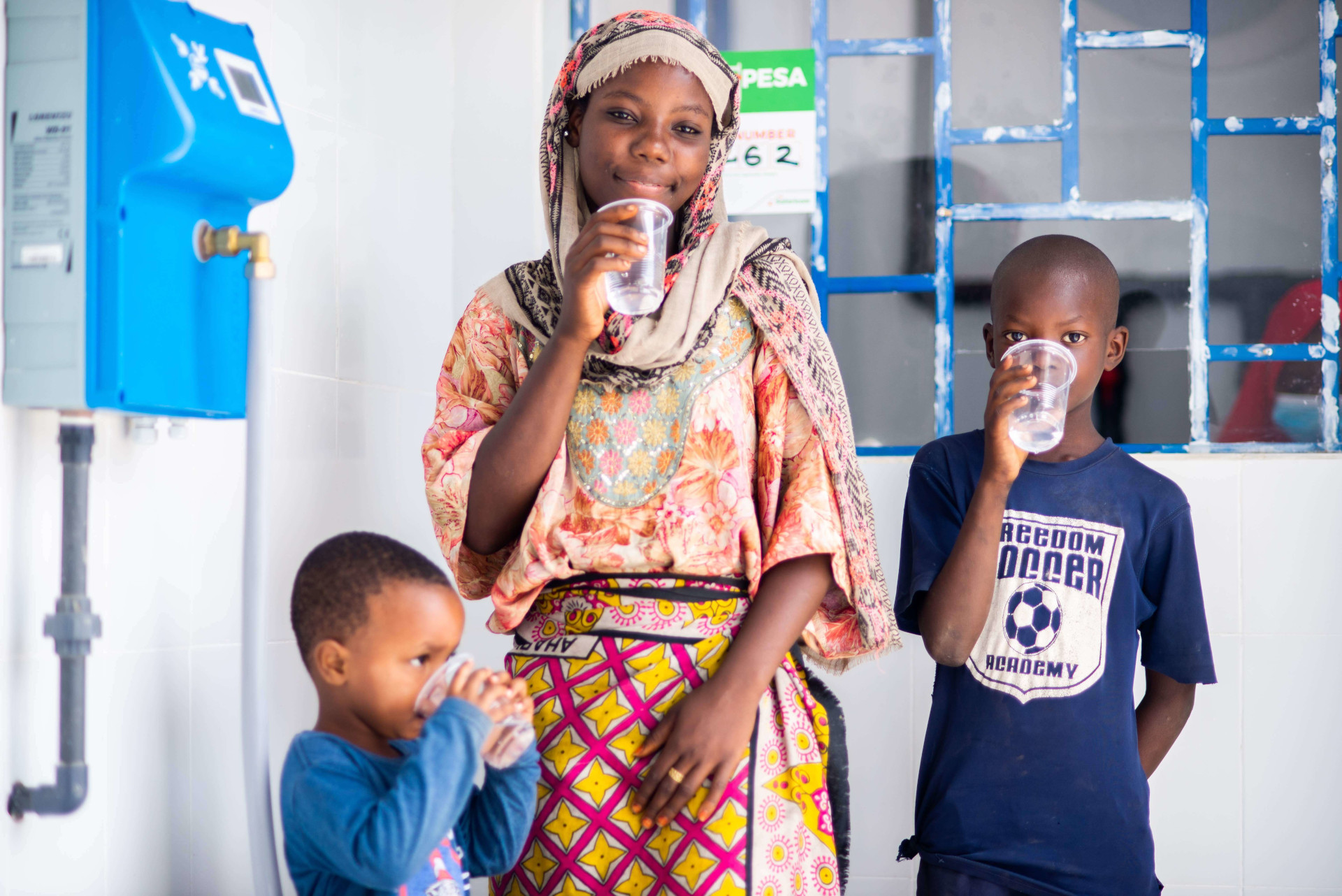GivePower Deploys Solar Water Farms in Kenya and Haiti
Non-profit provides access to 140,000 litres of clean water a day to over 70,000 people
SAN FRANCISCO, July 27, 2020 /PRNewswire/ — GivePower, a non-profit organization that provides solar energy and clean, affordable water to people who need it most, has deployed two of its Solar Water Farms in Mombasa, Kenya, and La Gonâve, Haiti. Powered entirely by solar energy and battery storage, GivePower’s desalination systems are housed in 20 foot shipping containers and capable of transforming 70,000 liters of brackish and/or seawater into clean, healthy drinking water every day. Unlike most ground well systems, GivePower solar water farms produce a higher quality of water over a longer period of time with virtually no negative environmental impact. GivePower partnered with World Hope International in Haiti who supported the project with a $250,000 donation as well as a variety of corporate and individual donors who helped fund both projects.
During these times of global unprecedented challenges, clean water is top of mind and this is especially true in communities that lack healthcare. In the face of COVID-19, GivePower acted urgently to push these projects forward, ensuring these communities had clean water in time to fight any outbreak. The Haiti facility, which became operational in late May, quickly drew long lines as the community registered to buy water. Kenya’s Likoni facility began distributing water July 27th, with people eager to acquire clean water.
“The world is living in very challenging times and it’s especially important to ensure communities have access to reliable, clean, affordable water to stay healthy,” said Hayes Barnard, Founder, Chairman and CEO of GivePower.
Waterborne diseases are the #1 cause of death on the planet and 2.1 billion people lack access to a reliable source for safe, healthy water. While traditional solutions such as wells or rainwater catchment work for some, it is not a solution for people living in dry coastal regions given the brackish nature of the groundwater and the lack of sufficient rainfall. This makes clean water very expensive, resulting in many people drinking the brackish water and falling ill from it. [Read Full Article]

